Summary
Moon Unit Zappa – Earth To Moon (White Rabbit/Hachette)
The original valley girl’s memoir is an acutely observed and at times shocking tell-all about growing up in the dysfunctional family of a 1970s rock star, writes GARY STEEL.
$39.99
 I vividly remember waking to the radio alarm one morning in December 1993 to the news that Frank Zappa had died, and how insulted I felt that of all the songs alternative radio station 95bFM could have played to mark the occasion, they’d chosen the gimmicky 1983 track ‘Valley Girl’, featuring a monologue by Frank’s 14-year-old daughter Moon.
I vividly remember waking to the radio alarm one morning in December 1993 to the news that Frank Zappa had died, and how insulted I felt that of all the songs alternative radio station 95bFM could have played to mark the occasion, they’d chosen the gimmicky 1983 track ‘Valley Girl’, featuring a monologue by Frank’s 14-year-old daughter Moon.
It wasn’t that ‘Valley Girl’ was awful, just that it didn’t even hint at the complex brilliance of Frank’s best compositions. Even Moon refers to the song as “a lighthearted ditty that in no way reflected the full depth and breadth of his work.”
It felt like the DJ was making fun of Frank. I was already reeling and wounded by having been unceremoniously made redundant the week before, from a great job with a popular magazine that its owners seemed to have quashed on a whim. It felt personal. I knew that Frank was ill with prostate cancer, but it didn’t seem real. Somehow, 31 years later, it still doesn’t. Frank’s music and social commentary and uncompromising attitude had hooked me at the age of 15 and become central to the way I processed the world. And I loved that he said broken hearts were for assholes and made fun of romantic so-called love, especially how this saccharine viewpoint inflicted itself on the popular song. Frank made me feel better about myself and got me through my difficult teenage years and his music presented a never-ending challenge, but one that was almost always thrillingly entertaining.
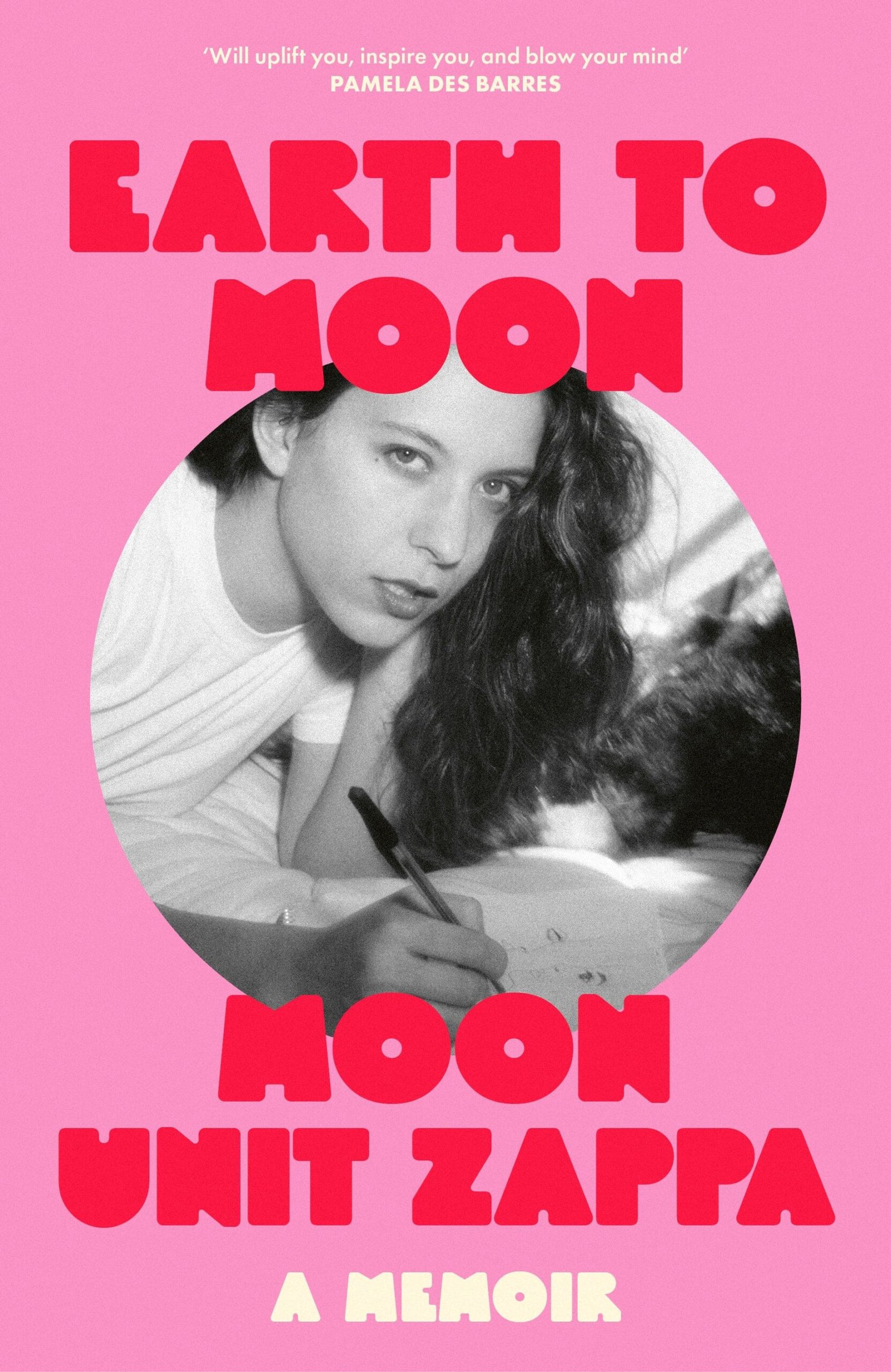
But ‘Valley Girl’, as fun as it was to listen to a few times, quickly palled. Frank had worked up a fairly pedestrian groove – by his standards – over which Moon spoke her lines in the exaggerated lingo of young girls from the San Fernando Valley in Los Angeles. It would be Frank Zappa’s only bona fide hit single in a career that spanned 30 years and around 100 albums, a fact that must have been galling to the composer.
In Earth To Moon, Moon Unit Zappa’s astonishing memoir, her recounting of the events around ‘Valley Girl’ are interpreted as she experienced them: a daughter desperately wanting some dad time putting a note under his studio door suggesting an idea, and then Frank hauling her out of bed in the middle of the night to briefly speak her lines… and then back to bed.
Although that story has been told many times before, this time Moon tells it with the same honesty and intelligence and sparkling wit she applies to the often jaw-dropping revelations elsewhere in Earth To Moon. And Frank fans will appreciate the ruthless bullshit detector and the, er… frank way she has with words, even if some of the starring characters elsewhere may baulk at the sometimes-embarrassing personal detail about specific incidents.
I can’t say for sure that the book will be of interest to the many for whom Frank Zappa is a rock’n’roll footnote or someone they actively despise (and there are many detractors), but on its own merits Earth To Moon works, partly because of the compelling way she tells her story, but also because there aren’t exactly a lot of books by the daughters of 1970s rock stars, and it bravely shines a spotlight on what turns out to be an often agonizing upbringing, and in a way that brings it to life, cystic acne and all.
Born in 1967 a year after Frank met and married her mother, Gail, Moon Unit Zappa grew up in the Laurel Canyon. Eventually, she would have three siblings, Dweezil, Ahmet and Diva, all of whom would experience the dysfunction of having a slightly mad, witchy, creative Mum with no maternal instinct and a sexually promiscuous rock god Dad who was emotionally absent.
In many ways it’s a miserable story, but Moon cleverly turns the torment on its head by somehow transforming her often lonely, forlorn childhood and teen years into an entertaining read. The Zappa household was about as far from convention as possible, and what I had imagined as a liberating degree of freedom (coming, as I did, from a fairly strict religious family) Moon found to be challenging, to say the least. With little affection or guidelines or even encouragement, sparse time with her father (who the whole family revolved around and existed for) and an increasingly mean and bitter mother, there wasn’t a whole lot of love to go around.
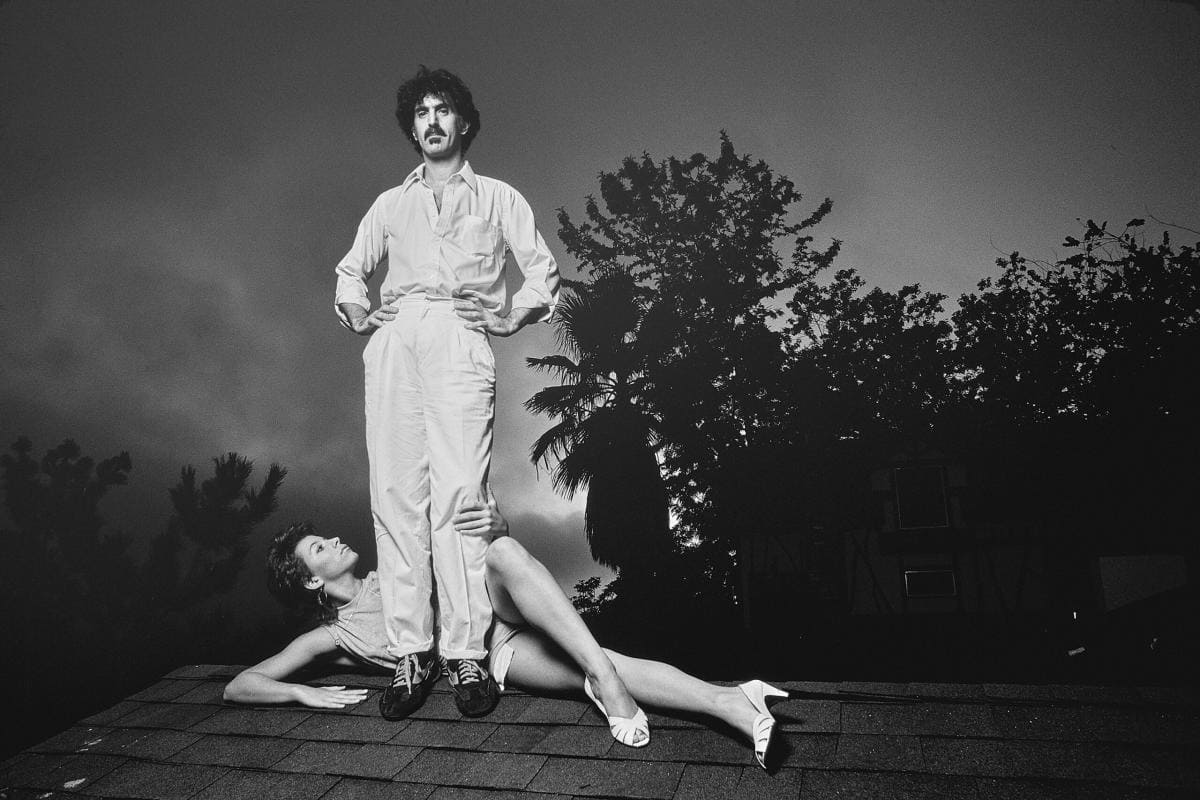
I have to be straight-up here: for dedicated fans of Frank Zappa, it’s a hard read. I’ve always accepted that he was a flawed individual (chain smoker, on-the-road womanizer) but his astonishing lack of affection for (and attention to) his kids is heartbreaking and made me wonder if his peculiar sensibility was the result of some kind of neurodiversity. Well, I’d rather think that instead of the idea that he was simply endlessly selfish. In interviews, Frank painted a picture of being a one-woman guy when he was off the road, but Moon bursts that lie right open too. It turns out that a New Zealand groupie (stand up and be counted, Vicki from Auckland, who Moon calls “a bag of cunt”) moved into the basement of their home for a few months in the early ‘70s, and that later, his affair with a German woman, Gerda, prompted him to ask Gail several times for a divorce. (She wouldn’t agree to it, and his staying around is never properly explained, the assumption being that extricating himself from family matters was just too-hard-basket.)
The degree with which Frank thought with his dick is also disappointing. Moon talks about how, after the cancer diagnosis, he initially refuses radiation because he wasn’t willing to lose his ability to get a hard-on; and how Gail convinces him to try a bunch of crackpot “alternative” treatments even though he was an atheist and a science guy. One of the many genuinely laugh-out-loud (but also appalling) stories in Earth To Moon has Frank being burped at by some self-proclaimed burp-in-the-face so-called healer. Only in America. Then there’s “a man with a special healing yogurt he makes in a sleeping bag under his floorboards,” and a woman who believes that there are angels and devils in each cell, and that she knows how to remove the devils. Shock horror: he still dies.
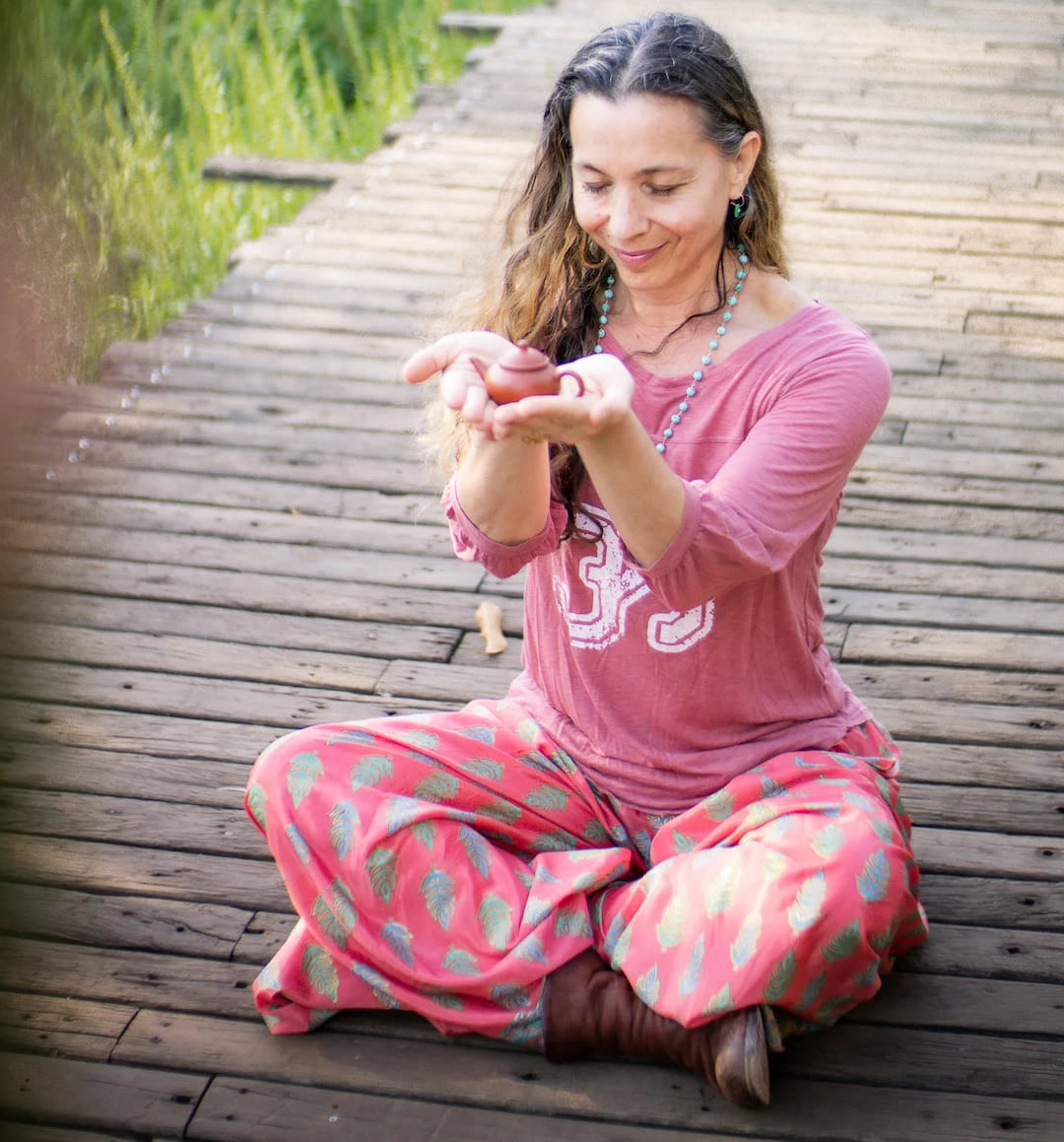
The inevitable chapter on Frank’s demise is especially grueling and the detailed description of his last breaths and the careful, tender washing of his body afterwards are harrowing but also genuinely touching. Moon gets to repeat the scene 22 years later with Gail – who dies of lung cancer in 2015 – and her detailed account of changing her mother’s adult nappies feels invasive, almost like a retribution for the vicious treatment meted out over many years, including the misappropriation of the money owed for her ‘Valley Girl’ hit and many other cuts with a small but sharp knife.
Gail’s bizarre lack of empathy is unleashed in force after her death in the way she goes against Frank’s wishes to give two of the siblings all the control over the family trust, thereby causing a seemingly unmendable family rift that’s still percolating.
While Earth To Moon will be interesting to fans of 1970s rock culture, much of it also takes place in the ‘80s and ‘90s when the family were indisputably part of the Hollywood scene. After all, Moon went to school with Janet Jackson and befriended the likes of Justine Bateman and married a guy from Matchbox 20. Anyone who got the idea from the Zappa kids appearing on MTV that they were Hollywood brats, however, probably needs to think again. Despite the common presumption that the Zappa’s were independently wealthy, they were often in debt, couldn’t afford the best schools and weren’t given the opportunity to go to university.
Moon went from the cult of her Dad to trying out Indian gurus and various therapies that led precisely nowhere, but Earth To Moon finds her in a good place. The ending would have been perfect had Ahmet and Diva come to the party and admitted that their mother’s wishes were wrong and that the family fortunes and responsibilities should be shared four ways, thereby mending the rift. And to be honest, there’s no way of knowing what justification they have for not doing so, except for some bizarre belief in their bizarre mother’s last wishes.
I was surprised to see Moon appear on brother Ahmet’s TV chat show Rocktails to promote Earth To Moon, their obvious affection for one another, and his telling of an encounter with Gail that perhaps sums up the level of her bitterness. Ahmet explained that when his first children’s book was published in the early 2000s he rang Gail to tell her, thinking that she might congratulate him. Instead, she said: “Can I have my vagina back now?” Ahmet noted that even that comment wasn’t quite right, as he was born by C-section. The siblings also talked about the fact that as small children, despite living in a generally drug-free, low-alcohol environment, they were given Baileys and Kahlua in their baby bottles. (This may have been apocryphal).
Moon explains in her book the eventual banishment from the house of most of their relatives, a fact that is especially hard to understand. When she was nine, for instance, uncle Carl Zappa was banned for having fun ballooning his pants in the family swimming pool. “Shunning and estrangement are a part of my family’s vocabulary, and anger and self-harm are becoming some of my coping skills,” she writes.
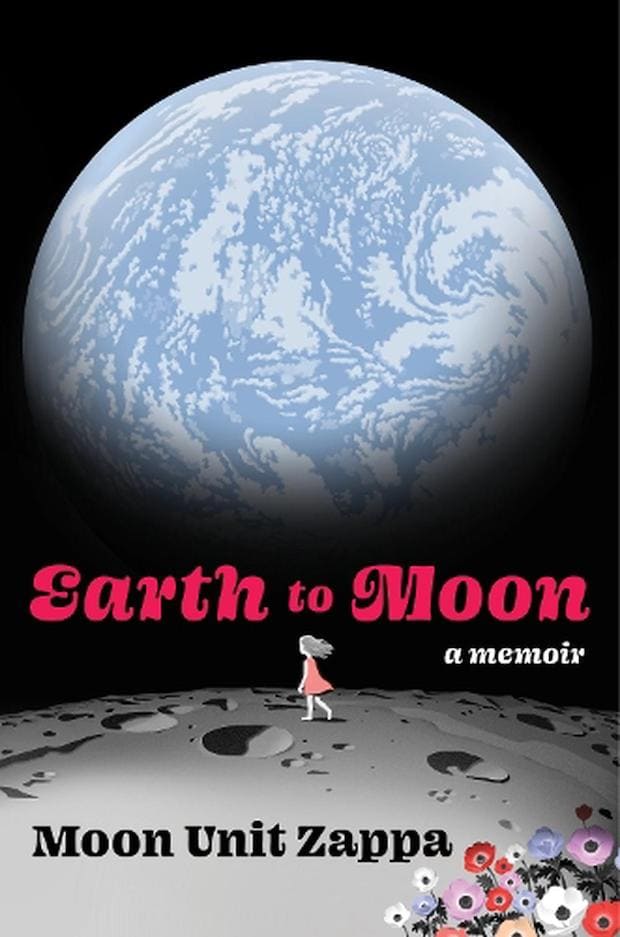
At times, it is tempting to minimize the gravity of Moon’s awful upbringing. After all, anyone who grew up in a typical boring family with corporal punishment and obligatory grace at dinnertime and “children are to be seen and not heard” (etcetera) might think that Moon’s upbringing would have been hugely preferable. But we all experience our unique familial torment and it’s wrong to think that hers is somehow less authentic because it took place in the Hollywood hills. There is a measure of what they once called “psychobabble” about Moon’s descriptions of the various therapies she’s tried (some of which she found useful) but happily, this never bogs the book down, and is useful in that it situates her firmly in Los Angeles at a time when there were whole bookshops full of “how to fix your life” journeys.
I loved it, and wished it was longer than its 351 pages. (Speaking of which, in my UK version of the book, page 310 is totally blank!) I wish Moon had more to say about some of the characters that appear briefly, and many I expected to read something about are completely missing, like Frank’s secretary Pauline Butcher, and various of the musicians that were such a big part of his music who must have spent time at the family home.
Quibbles? Moon does do one thing I really dislike in memoirs, and that is put quotes on conversations she had when she was very young that she can’t have remembered word-for-word. I mean, who does? And do we really need to know that Gail told everyone that she had the best orgasm of her life pushing Dweezil out of her vagina? Or that Missing Persons singer Dale Bozzio has pubic hair that “looks like a little hummingbird’s nest or a fawn’s tail”? (Come to think of it, I quite like that description).
She also makes a few small errors. For instance, at the age of 6, she says that at the she wanted to go to NZ and all the other places Frank has been. But Frank didn’t visit NZ until 1976, when she was 9. (At least, not officially). And the infamous incident where Frank blows his nose on Gail’s skirt is quoted in different parts of the book as their first and second date.
Frank fans will love the small revelations that occur from time to time that hint at a person beyond the sex obsessed and distant dad, including descriptions of the type of books he collected and some of the music he loved that he never mentioned in interviews. Apparently, for instance, the famous misanthrope loved the musical Cats so much that he saw it twice. For anyone with a knowledge of his music and attitude, that seems almost heretical.
But equally, fans might wonder at the seeming paradoxes of a man who wrote songs like ‘Mom & Dad’ (“Ever take a minute just to show a real emotion/In between the moisture cream and velvet facial lotion?/Ever tell your kids you’re glad that they can think?/Every say you loved ‘em? Ever let ‘em watch you drink? Ever wonder why your daughter looked so sad?/It’s such a drag to have to love a plastic mom & dad”.)
For Moon, it’s clear that she loved her dad and that there were good times. She loves how Frank makes her laugh by making fun of what’s happening in the world, and notes as a teen that Frank likes watching the news, Elvira and “all Godzilla and monster movies.” When Moon is 13, she writes in her diary that Frank is shy and depressed and drinks a minimum of 12 cups of espresso each day. But Frank works by night and sleeps by day, meaning that the family have to be quiet and that mostly, they pass like ships in the night. And there are some frankly (ha) awful examples of her dad’s brazen insensitivity that any normal dad would be ashamed of, and which I’m too embarrassed to repeat here.
If there’s a villain in Earth To Moon, it’s Gail, who she says reacts to the news of Frank’s terminal illness with pent-up rage: “No sadness, no tears, just a task-minded busyness mixed with a quiet glee – delaying his meals, letting his coffee get cold before she gives it to him, not showing him his mail, no longer letting him know about who calls him, not taking messages from them, postponing telling him his test results.”
I’ve got mixed feelings about Moon’s casting of her mother in this light, but at least she realizes that to a degree, Gail’s strangely vindictive behaviour was mapped out by her own upbringing and the years of servitude she’d experienced.
Moon Zappa is a smart woman, a sharp writer and someone who has clearly used her challenges to her own advantage, eventually. And Earth To Moon is a very fine memoir, and I loved it.
+ Earth To Moon by Moon Unit Zappa is available from Schrodinger’s Books.










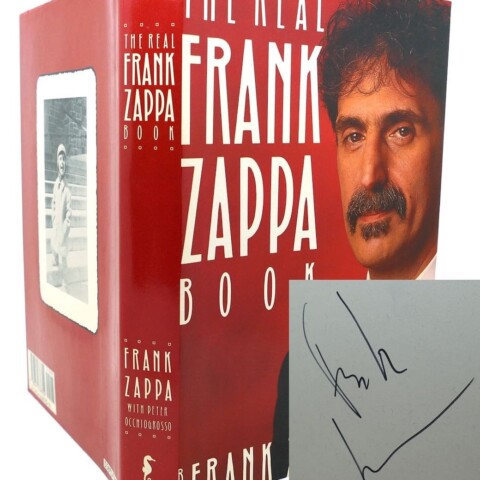


I too am appalled that Valley Girls was Zappa’s major hit and bFM chose it. But it also shows clearly that Frank could write and perform any kind of music he wanted to but eshrewed writing popular stuff to make more money.
Which to me is both good and bad – but as for popular, Joe’s Garage and Bobby Brown at least SHOULD have been played by 95bFM. At least because Broken Hearts are for Assholes would have been even better and I like to think Frank would have thought that song a suitable Epitaph aimed squarely at those heart-broken by Zappa’s pre-mature death.